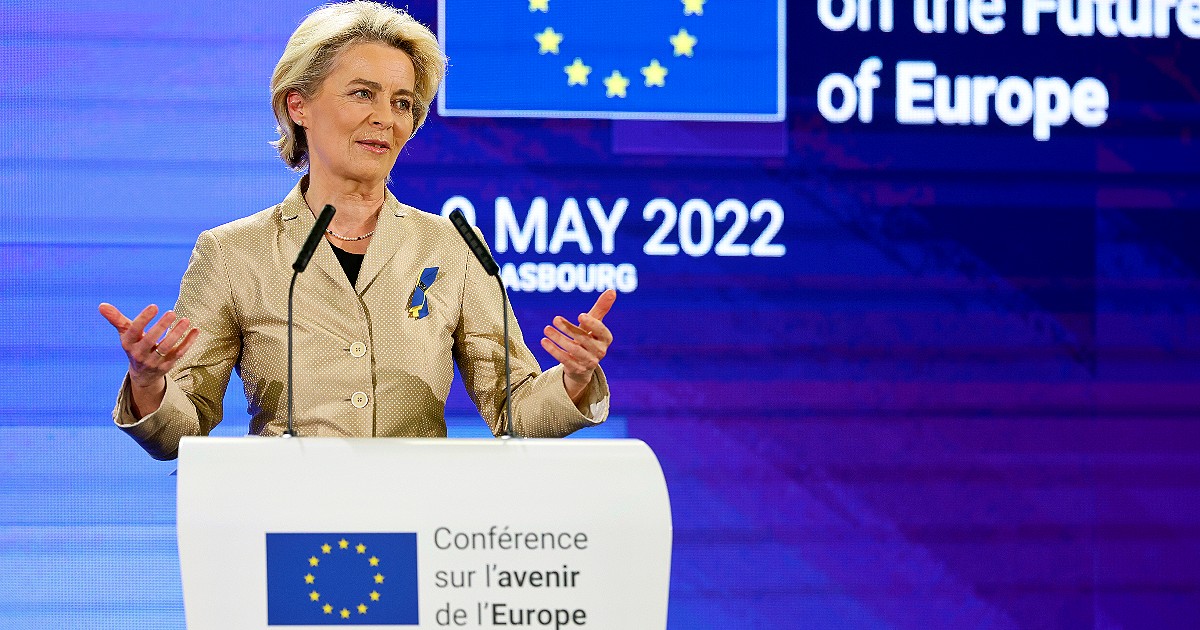Review the treaties ofEuropean Unionincluding the voting systemunanimity. This is the line taken by the President of the Commission Ursula von Der Leyen and by the French president Emmanuel Macron during the celebration of Europe Day. Today 9 maggio have been presented the 49 maxi-proposals developed during the experiment of direct democracy which involved all the EU states. A request emerged from the shareholders’ meetings for “modify the treaties”, Now strongly supported by both from Der Leyen that from Macron himself, in the aftermath of veto dell’Hungary that has again blocked the green light for the sixth package of sanctions against Russia. The idea of a revision of the treaties and of the overcoming unanimity was also supported by the Italian Prime Minister, Mario Draghibut a group of 13 EU countries has already signed up for a non-paper (informal document) and took sides against: “It would be reckless and premature.”
At the closing ceremony of the Conference on the Future of Europe, Macron said he intends to start a discussion as early as the next June European Council. “The challenge you are setting us is to be effectivemeans Act quicklyin a compact way, leaving no one behind and in the face of this it will be necessary review the rules. And I would like to say that one of the ways of reform is the convening of one convection for the revision of the treaties. It is a proposal from the European Parliament which I approve, I am in favor“, Said Macron, who holds the rotating presidency of the EU Council. The French president, as before him too from the Leyen, pushed on the importance of changing the decision-making mechanisms. “The avant-gardes, different opinions have always been the driving force behind Europe’s growth, but in recent years I think that the need to decide at 27 have slowed down this commitment ”, said the French president. “The heads of state and government they never come together as a eurozone, and that is wrong. L’Multi-speed Europe it already exists. We must not exclude anyone but we must also not let a few block everything “.
